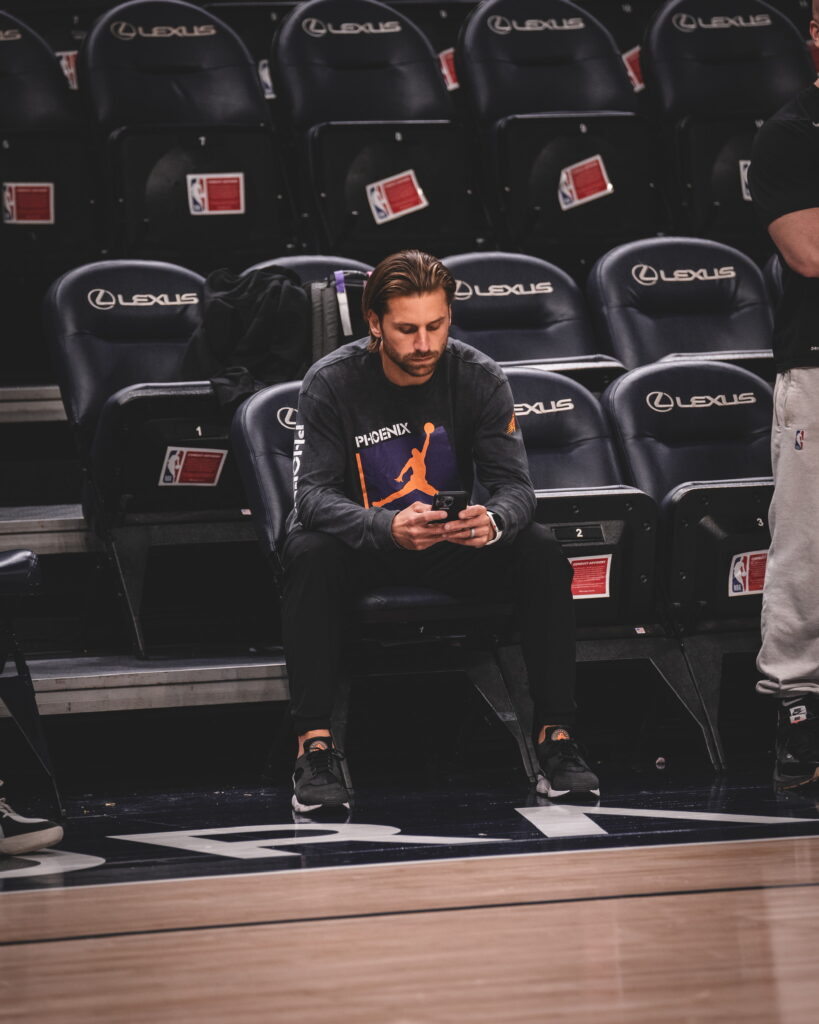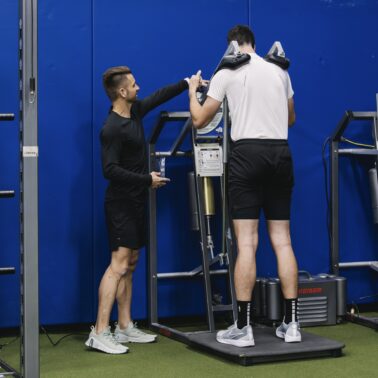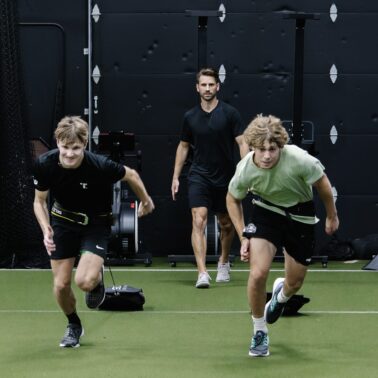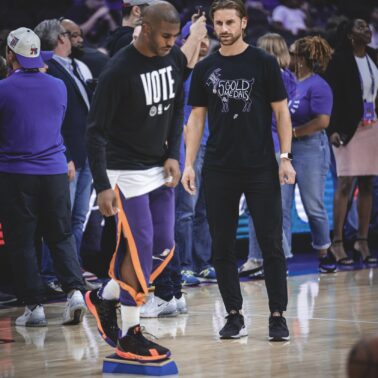“Many stakeholders want to help during return to play, but understand when to help is just as important as how to help. Everyone will get paid, but in some phases of rehab your job may be to do nothing.”
Adam Loiacono
What You Will Learn
- Why it is important to focus on singular goals during specific rehab themes.
- How to showcase the journey of rehab with all the steps.
- Advice on communicating across different departments.
An injury happens. The athlete wants to be better yesterday. Many people on the medical and performance staff want to help and be in the trenches. Coaches want to know when they can be back on the court.
This story plays out frequently for me during a rehab case. The mental model I have created to manage the different departments is called The Bank.

Time is Money
Everyone understands money. Everyone understands a budget. We can’t buy everything all the time. In rehab, we can’t attack every athletic quality every day. We must budget our time, and our resources, to focus on the most important goal for that phase.
The previous article I wrote discussing The Continuum outlined how an athlete progresses through rehab through different themes. The Bank elaborates on this model such that each theme has designated experts.
Within each phase of rehab, we only have a budget of $100. How are we going to allocate our money to the respected experts based on the necessary goals of rehab?


Personal Disclaimer
I believe in job titles for sake of organizational hierarchy and communication. In my models of The Bank and The Continuum, job titles are insignificant. I want the best person, with the best skillset, for this specific goal regardless of profession or title.
It is well within my scope as a physical therapist to provide diagnosis, acute care management, rehab, and manual therapy. I am also a strength & conditioning coach. It is well within my scope to provide strength training, sprint training, and conditioning programs. There’s a lot to unpack there. Could I provide all those interventions within each of those themes? Absolutely, that’s what I love about where I am in my career.
But – am I the best on my team to provide that intervention. Not always. Sometimes my personality does not jive best with a particular athlete. Orthopedic specialists see thousands of patients a year for a very particular body part. Their diagnostic skills may be more refined than mine for that body part. Athletic trainers have more experience in immediate care than I do based on the American education system for that profession. Some performance coaches have spent time working with track & field and are better at coaching the sprint than I am.
Recognizing talents, personalities, and overall interactions are the foundations to implementing The Bank.




